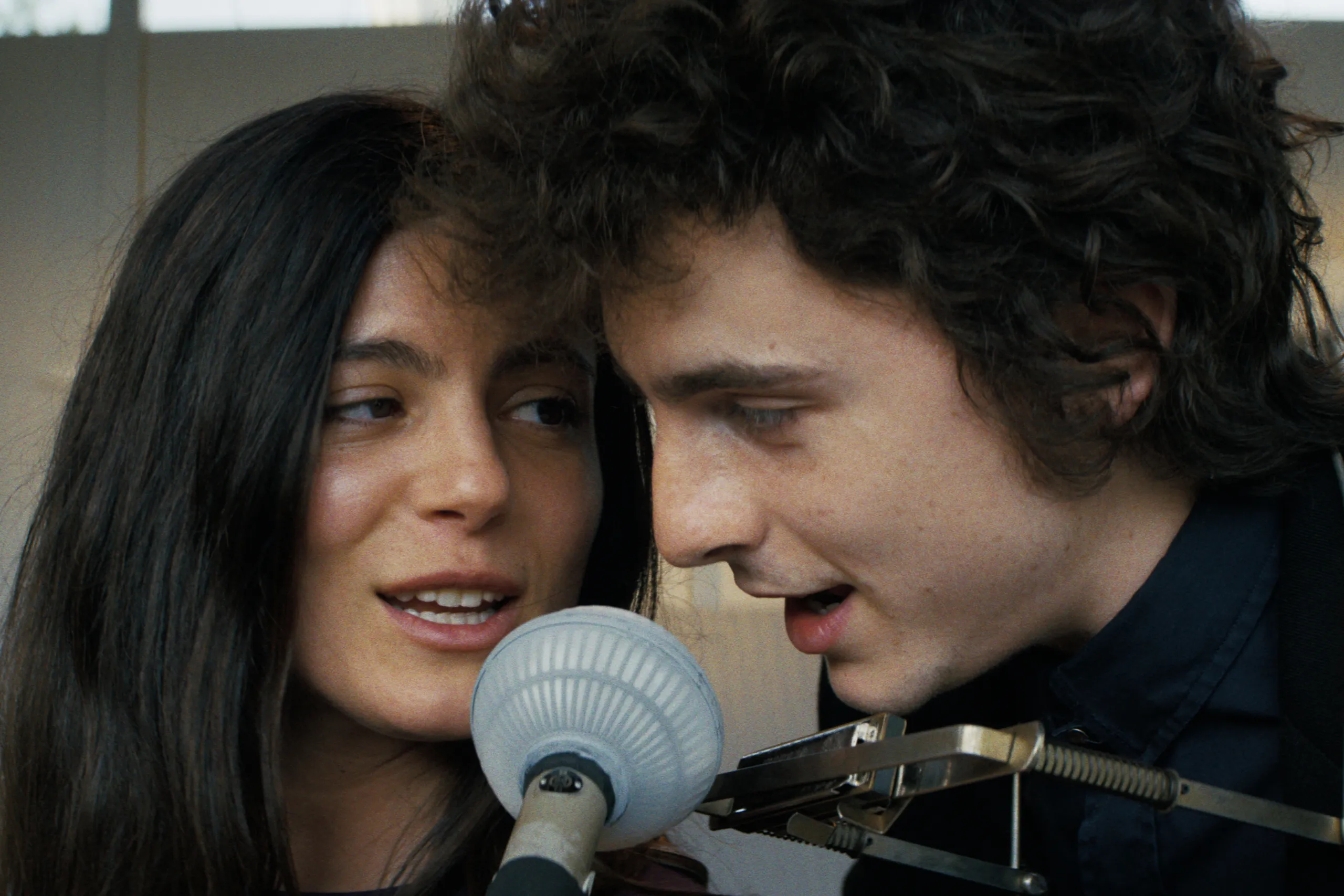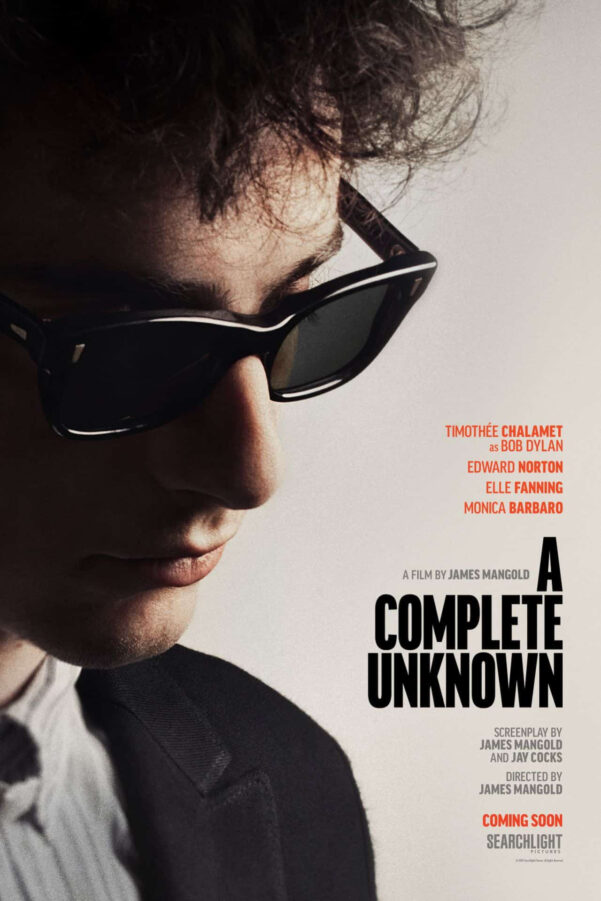A Complete Unknown

Much has been said about the recent epidemic of Oscar-baity biographical films, largely befalling the subject of musicians, likening periodicity and paint-by-numbers approach to comic book adaptations. Since Walk the Line was one of the defining features to pave the way for the studious compression of an artist’s life and work into a bite-sized dramatisation, it comes as no surprise that after his own venture into the cinema of Marvel, director James Mangold returns to the genre he helped shape. Semi-officially also referred to as “the Bob Dylan story”, A Complete Unknown feels a little bit like The Avengers, with famous faces of the 1960s converging around the emerging artist. Timothée Chalamet mimes the singer né Robert Allen Zimmerman, who travels to New York with a guitar and a dream and whose path soon crosses Woody Guthrie’s (Scoot McNairy), Pete Seeger’s (Edward Norton) and Joan Baez’s (Monica Barbaro). Walk the Line’s protagonist Johnny Cash circles Dylan’s orbit as well. However, Mangold re-cast the Man in Black, who is now played by Boyd Holbrook (crossovers may just be the only thing missing from biopics completely assuming the identity of superhero movies).
The feature starts off by dutifully checking off steps from a to-do list: Dylan meets his heroes, is welcomed into the Greenwich Village folk scene – although his recognition of Little Richard on the radio lets viewers know he has always been open to other genres – the political environment of the times is established through news reports and rallies, Dylan is given a non-musician girlfriend (Elle Fanning) he can mansplain his emerging career to (handy for the audience to keep track), but their passion will never match the one he has with fellow singer Joan Baez.
Chalamet’s Dylan tells Baez that she’s trying too hard in her attempts to write songs. However, it is Chalamet who feels strained in this exchange. Various delays in production resulted in the actor being given five years to prepare for the role and it reflects in striking confidence playing his music, his instruments and mastering his voice. In the intimate scenes, for which Chalamet would have had no material of Dylan to refer to, the audience becomes acutely aware that they are watching a performance. This is countered by Monica Barbaro’s unceremoniousness and absolute ease in handling her character. She’s perhaps aided by the fact that less limelight is and has been shone on Baez, but her genuineness is impressive as she taps into an emotional core rather than focus on mimicry.
Like a mid-film title card – it’s all too easy to see the working title “Going Electric” in place of the date – the year 1965 splits the story in two. Energy-wise, what follows is an almost entirely different film. Everything the first hour spent building is being dismantled as the true focus of the narrative emerges: Dylan’s rejection of fame, of genre, of expectation, of identity. The script no longer stumbles around hollow-ringing phrases once it embraces the fact that the true passion in Dylan’s story lies in his refusal to be boxed in. Suddenly Chalamet’s performance doesn’t work so hard against him, but harnesses his own roguish charm and creates an amalgam of the actor and his character. Scenes in which he jokes around in the recording booth or throws in a sardonic “hehe” ring true to both Chalamet and Dylan and create a more complete image of the musician than the strict imitation of the initiation. The film gains in vitality every time Dylan rubs someone the wrong way and simultaneously uses and upends the tropes so ingrained in the biopic blueprint.
Bob Dylan remains an artist too difficult to nail down, let alone summarise in a two-and-a-half-hour drama, but A Complete Unknown creates awareness of why that is the case.
Selina Sondermann
A Complete Unknown is released in UK cinemas on 17th January 2025.
Watch the trailer for A Complete Unknown here:

























Facebook
Twitter
Instagram
YouTube
RSS